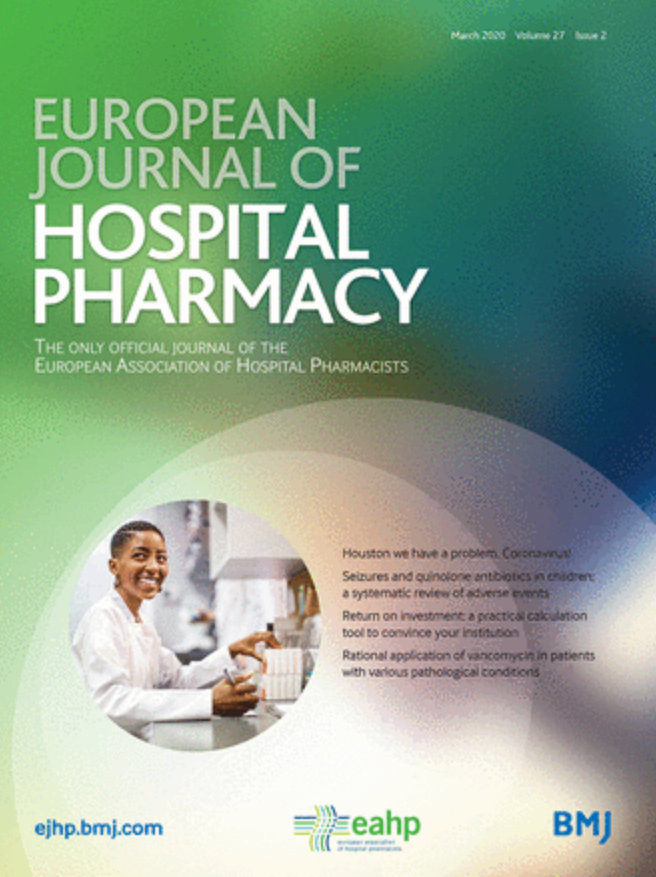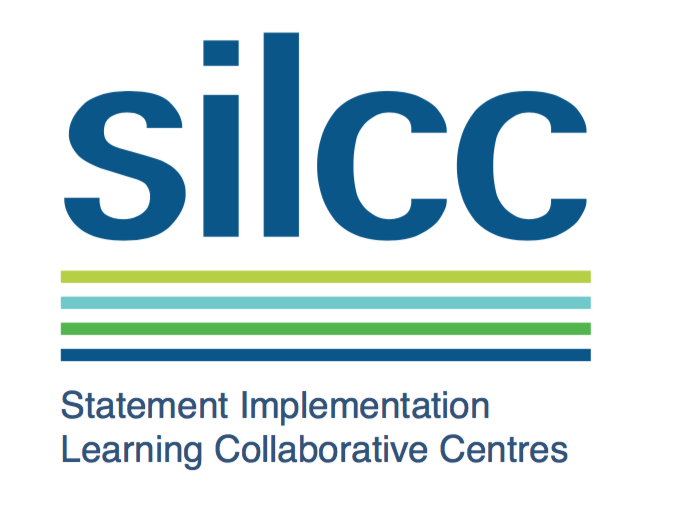The EAHP EU Monitor is a regular round up of news relevant to hospital pharmacy in Europe.
You can subscribe to receive the EAHP EU Monitor by email HERE.
EAHP’s European List of Emergency Medicines

Disasters such as storms, earthquakes and wildfires are happening more and more frequently. To better prepare hospital pharmacists – who are one of the fundamental cornerstones for effective and efficient performance of rescue operations before and during a catastrophe – the European Association of Hospital Pharmacists (EAHP) has made available a European List of Emergency Medicines (ELEM).
The ELEM was developed after an evaluation of the most common causes of natural disasters in Europe, their consequences and the role of the hospital pharmacy before and during the catastrophe. The report, prepared by Dr D. Leonardi Vinci, Dr E. Di Martino, Dr R. Giammona, Dr M. E. Faggiano and EAHP Board members Dr P. Horák, Dr N. Miljković, Dr D. Makridaki and Dr P. Polidori, outlines how the ELEM was created including the criteria used and the considerations made which are specific for Europe, such as the reliable availability of different medicines.
Two support tools for clinicians, pharmacists and institutions have been made available, the disaster medicine assessment template and the disaster stock management template. The disaster medicine assessment template is based on the most relevant World Health Organisation emergency list and was adapted to the European scenario. It also includes a calculation sheet that quantifies the number of drugs needed and a self-assessment indicator that allows each hospital to rapidly evaluate its percentage of compliance with the proposed ELEM. The disaster stock management template enables the management of drug stocks during an emergency, automatically updates the quantity of stock available and keeps notes regarding all restock and withdrawal movements through a printable form.
Learn more about the European List of Emergency Medicines HERE
International Survey of Opioid Stewardship Practices

The survey aims at collecting information on opioid stewardship practices across the world. Questions touch on policies and regulations, logistics, clinical practices and the perceptions/attitudes toward opioid stewardship. It will take about 20 to 30 minutes to answer the survey.
Access the survey HERE
Updates from the EMA

In early March, the European Medicines Agency shared information on the start of an assessment of medicines for which studies have been conducted by Panexcell Clinical Laboratories Priv. Ltd, a review of the cancer medicine Yondelis and an update on nitrosamines in EU medicines.
Start of review of medicines for which studies have been conducted by Panexcell Clinical Laboratories Priv. Ltd at its site in Mumbai, India
EMA has started a review of medicines for which studies have been conducted by Panexcell Clinical Laboratories Priv. Ltd at its site in Mumbai, India. This follows a good clinical practice inspection which raised concerns about the study data used to support marketing authorisation applications of some medicines in the EU. The inspection was carried out jointly by Austrian and German authorities in October 2019 in the context of the evaluation of an application for marketing authorisation of a medicine.
Having considered the inspection findings, the German medicines agency requested EMA to assess the impact of these findings on the benefits and risks of medicines that have been authorised in the EU based on studies performed by Panexcell Clinical Laboratories Priv. Ltd at its site in Mumbai. EMA has also been requested to look at the impact of the findings on medicines currently being evaluated for authorisation. EMA will now review the available data to determine if any action is necessary to protect public health.
More information is available HERE
CHMP has started a review of the cancer medicine Yondelis (trabectedin) used to treat ovarian cancer
EMA’s Committee for Medicinal Products for Human Use (CHMP) has started a review of the cancer medicine Yondelis (trabectedin), used to treat ovarian cancer (cancer of the ovaries) and soft-tissue sarcoma (a type of cancer that develops from the soft, supporting tissues of the body). The review started after a clinical study (OVC-3006) investigating the use of Yondelis in patients with ovarian cancer was stopped ahead of time, because an interim analysis of the results showed that, overall, patients treated with Yondelis plus pegylated liposomal doxorubicin (PLD, another cancer medicine) did not live longer than patients given PLD alone.
Although there were some differences in the types of patients enrolled in study OVC-3006 compared with those of the study on which the authorisation of Yondelis for ovarian cancer was based, study OVC-3006 also included patients for whom Yondelis would be indicated. EMA will, therefore, review the available data to assess whether the results from study OVC-3006 have an impact on the authorised use of Yondelis in patients with ovarian cancer. This review does not cover the use of Yondelis for the treatment of soft-tissue sarcoma. While the review is ongoing, Yondelis can continue to be used for the treatment of both ovarian cancer and soft-tissue sarcoma, according to the authorised product information. Patients who have any questions about their treatment should speak to their doctor.
More information is available HERE
Update on nitrosamines in EU medicines
EU and national authorities are continuing their work to prevent and manage the presence of nitrosamine impurities in EU medicines. Nitrosamines are classified as probable human carcinogens (substances that could cause cancer) based on animal studies. They are present in some foods and water supplies and are not expected to cause harm when ingested at very low levels. In the few medicines where they have been found, the risk to patients is expected to be low. A review by EMA’s human medicines committee (CHMP) is currently considering evidence on how a nitrosamine called N-nitrosodimethylamine (NDMA) came to be present in some batches of ranitidine (a medicine for heartburn and stomach ulcer).
Also, EMA and national authorities are assessing the impact of recent tests which found NDMA in some EU batches of metformin medicines, used for diabetes. Further results from tests on metformin in the EU are being awaited. In line with previous advice, patients should continue taking their metformin medicines as usual. The risk from not having adequate diabetes treatment far outweighs possible risks from low levels of nitrosamines. An ongoing procedure aimed at providing guidance to companies on how to deal with nitrosamines in medicines is currently gathering evidence and considering opinions from leading experts in the EU. As a result of this procedure, which began in September 2019, measures to evaluate and mitigate the risk of nitrosamines are being implemented across the EU.
Authorities in the EU are also conducting an exercise to determine what lessons can be learnt from the presence of nitrosamines in sartans, which came to light in mid-2018. The lesson learnt group is currently finalising recommendations to prevent and better manage the presence of impurities in the future. EMA will continue working closely with national authorities, The European Directorate for the Quality of Medicines and HealthCare (EDQM) and international partners and will take all necessary measures to protect the quality of medicines in the EU.
More information is available HERE
EJHP: Medication review versus usual care to improve drug therapies in hospitalised older patients admitted to internal medicine wards

The study evaluated the prevalence and nature of potentially inappropriate medications (PIMs) in a group of hospitalised older patients and verified whether the use of ‘Beers criteria’ and/or ‘START & STOPP’ criteria could lead to deprescribing of drugs and reduce the length of stay in the hospital. The use of criteria that detect inappropriate prescriptions reduced PIMs and adverse drug reactions, increased safety in older patients, and reduced the number of drugs prescribed but did not reduce the length of stay in hospital.
Read the article HERE
Become a SILLC fellow!

EAHP’s Statement Implementation Learning Collaborative programme (SILCC) is your opportunity to experience the daily work of a fellow hospital pharmacist in another European hospital pharmacy. The programme provides you with the unique opportunity to broaden your horizon by learning more about pharmacy procedures linked to the European Statements of Hospital Pharmacy. As SILCC Fellow you can choose between host institutions in Germany, Hungary, Italy, Spain, Sweden, Turkey and the United Kingdom. Have a look at the registration requirements and hand in your application today!
___________________________________________________________________________________________________________________
Consultations

Commission – Europe’s Beating Cancer Plan
The public consultation for Europe’s Beating Cancer Plan is seeking to collect feedback on the pillars of the plan which include cancer prevention, diagnosis, treatment, follow-up care and research from individual citizens, patients, and carers replying in their personal capacity as well as health professionals and organisations.
Deadline – 7th May 2020
Access consultation HERE






























